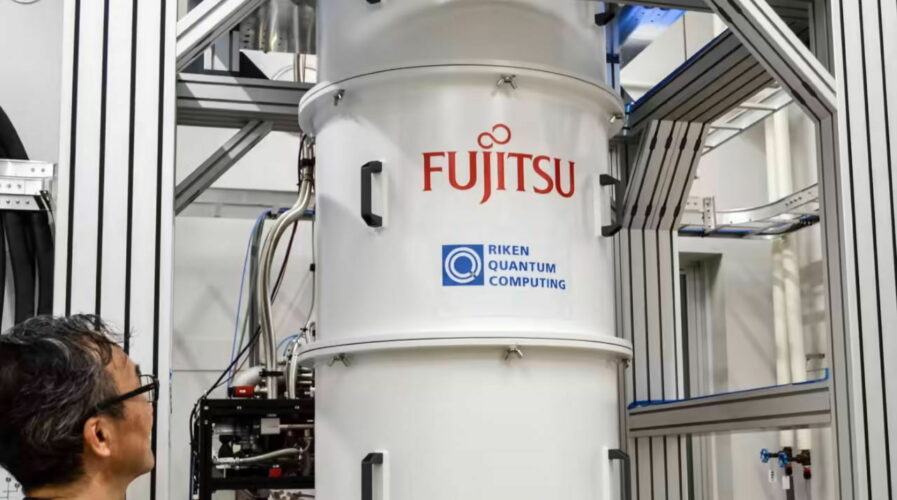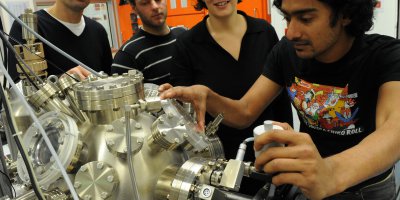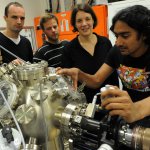
Fujitsu to commercialize first Japan-made quantum computer next year.Source: Fujitsu
Fujitsu to commercialize first Japan-made quantum computer next year
- Fujitsu teamed up with scientific research institute Riken to become the first company in Japan to sell quantum computers starting next year.
- The first quantum computer Fujitsu intends to sell has 64 qubits.
- Their target market includes research companies working in the fields of medicines, materials, and financial forecasting.
Progress around quantum technology such as quantum computers, which have performance far superior to that of supercomputers, have been rampant in recent years. The United States (US) have been at the forefront of this revolutionary technology since its early years but China is gradually pulling into the lead. In hindsight, Japan revamped its national quantum technology strategy to catch up with the US and China in the global race to develop this highly disruptive technology.
Now, Japan is ready to give US tech giants, IBM and Google, a run for its money, that too locally. For context, IBM and Google are among the companies that are in the forefront of the quantum computing race, and have even claimed ‘quantum supremacy’ through various milestones. To recall, Google in 2019 said it had achieved “quantum supremacy,” completing a task in about three minutes that it claimed would have taken the best classical supercomputers 10,000 years.
Interestingly, IBM is the company that unveiled Japan’s first quantum computer for commercial applications and up till now, no local companies have achieved such a feat — until this week.In collaboration with scientific research institute Riken, Fujitsu will be the first company in Japan to be offering quantum computers for commercial purposes starting April 2023. According to the report by Nikkei, Fujitsu has been working with Riken in Japan since last year at its new research center, the Riken RQC-Fujitsu Collaboration Center, located in Wako city, Saitama prefecture.
According to an article by Medium, “quantum computers could spur the development of breakthroughs in science, medications to save lives, machine learning methods to diagnose illnesses sooner, materials to make more efficient devices and structures, financial strategies to live well in retirement, and algorithms to quickly direct resources such as ambulances.”
Therefore, with the participation of about 20 researchers, the machines by Fujitsu and Riken will be made to cater research within fields of medicines, materials, and financial forecasting. Apparently, the first quantum computer they intend to sell next year has 64 qubits. The government-backed Riken institute has been leading quantum computing development efforts in the country.
Through the institute, the government intends to add two new research sites to explore industrial applications, bringing the total locations to 10. “One of the two will be housed at Tohoku University in Sendai, Miyagi Prefecture, on the northeastern coast of Japan. It will train personnel and support research and development. The other new site, at Okinawa Institute of Science and Technology Graduate University, will serve as a hub for advancing joint research by global scientists,” Nikkei said in a former report.
Japan, based on the draft strategy, foresees support for quantum technology startups through a state-owned fund. But even to Japan, private sector efforts and active investment will catalyze the spread of this new technology, more than government-led efforts to an extent. Hence, the formation of the Quantum Strategic Industry Alliance for Revolution (Q-STAR) by 24 companies including some household names such as Toyota Motor, Hitachi and NTT.
“Q-STAR will invite the participation of diverse industries that support its objectives and initiatives, and will collaborate with industry, academia, and government in promoting initiatives that apply new technologies, and establishing related technology platforms,” according to a release by NTT in 2021. The alliance also aims to establish a globally-recognized platform that will promote collaboration with other organizations around the world working in quantum technology.
READ MORE
- Ethical AI: The renewed importance of safeguarding data and customer privacy in Generative AI applications
- How Japan balances AI-driven opportunities with cybersecurity needs
- Deploying SASE: Benchmarking your approach
- Insurance everywhere all at once: the digital transformation of the APAC insurance industry
- Google parent Alphabet eyes HubSpot: A potential acquisition shaping the future of CRM


